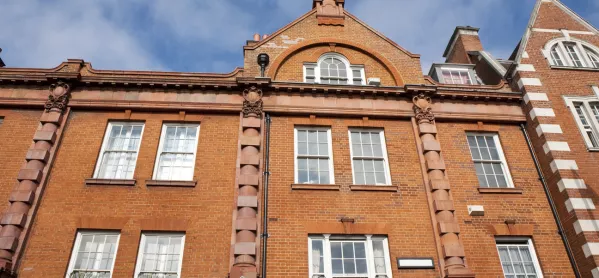5 reasons private schools are ‘on the edge’
Share
5 reasons private schools are ‘on the edge’
Tes has learned that up to 30 per cent of UK private schools could face closure because of the coronavirus pandemic. Here some of the main reasons behind the sector’s difficulties:
Fee reductions
“Most schools have reduced their fees for this term. They have done that not because they are able to make big savings but because they want to recognise the difficulties that many parents have financially,” a senior figure in the sector told Tes.
Exclusive: Fears 30% of private schools will go bust
Warning: Hundreds private schools ‘bust by Christmas’
Related: Private schools ‘wrestling’ with fee cuts
But schools still needed to pay teachers, who could not be furloughed while they were preparing online classes, which meant that any remission in fees for parents this term could leave schools struggling financially.
Tes understands that one successful London private school has lost at least £4.5 million by reducing its fees by 15 per cent this term, and that it would have lost up to £2 million more through a reduction of 20 per cent.
Rising teacher pension and salary costs
The Teachers’ Pension Scheme has placed “inexorable pressure on staff costs, so there’s a bit of a perfect storm”, David Woodgate, chief executive of the Independent Schools’ Bursars Association told Tes. The pressures wreaked by the coronavirus outbreak might mean more schools could seek to leave the scheme to cut costs, he suggested.
Furthermore, Mr Woodgate said the higher starting salaries for teachers promised by the prime minister earlier this year could also put pressure on private schools to improve the pay of more experienced staff to maintain differentials. It was another cost pressure “that cannot be passed onto the parent base through increased fees”.
Existing financial problems
Tes understands that schools that were in financial difficulties have been the first to close during the current pandemic.
For schools that were struggling, “this event has simply pushed them over the edge”, a senior figure in the sector told Tes.
And Chris King, chief executive of the Independent Association of Prep Schools, said schools that had “been poorly governed and managed and perhaps had a falling roll” were likely to suffer.
But he said this did not mean that small schools were more likely to close than larger ones. “In fact, you might even say larger schools are more vulnerable,” he said.
Pupils from overseas
Boarding schools relying on pupils from overseas could face particular challenges. In the 2020 Independent Schools Council census, 29,446 pupils with parents living abroad were recorded at ISC schools, making up 4.8 per cent of the sector - but in some schools, the proportion will be higher.
“I have spoken to agents in Hong Kong and China, and they are pretty confident that the situation will recover, but not until vaccination has been administered to the population and the health crisis is over,” a senior figure in the sector told Tes.
If overseas pupils do not return in September, this could cause significant difficulties for boarding schools.
“There is a significant question mark hanging over boarding schools [that] might have had a significant overseas membership on roll: will those children rejoin in September, will they be allowed to even if they want to? So that is another level of uncertainty,” said Mr King.
Tes understands that this issue could even affect some of the largest and most famous British public schools with a significant proportion of pupils drawn from overseas.
Schools will not qualify for loans
Schools may also not qualify for government-backed loans for small businesses. Government support for business during the pandemic includes allowing small businesses to borrow up to £25,000 during the crisis, but this would not cover the bulk of private schools’ costs in covering teaching salaries.
While the hospitality and retail sectors can furlough employees, teachers who are still working to prepare online learning cannot be furloughed and therefore the bulk of school expenditure remains.




